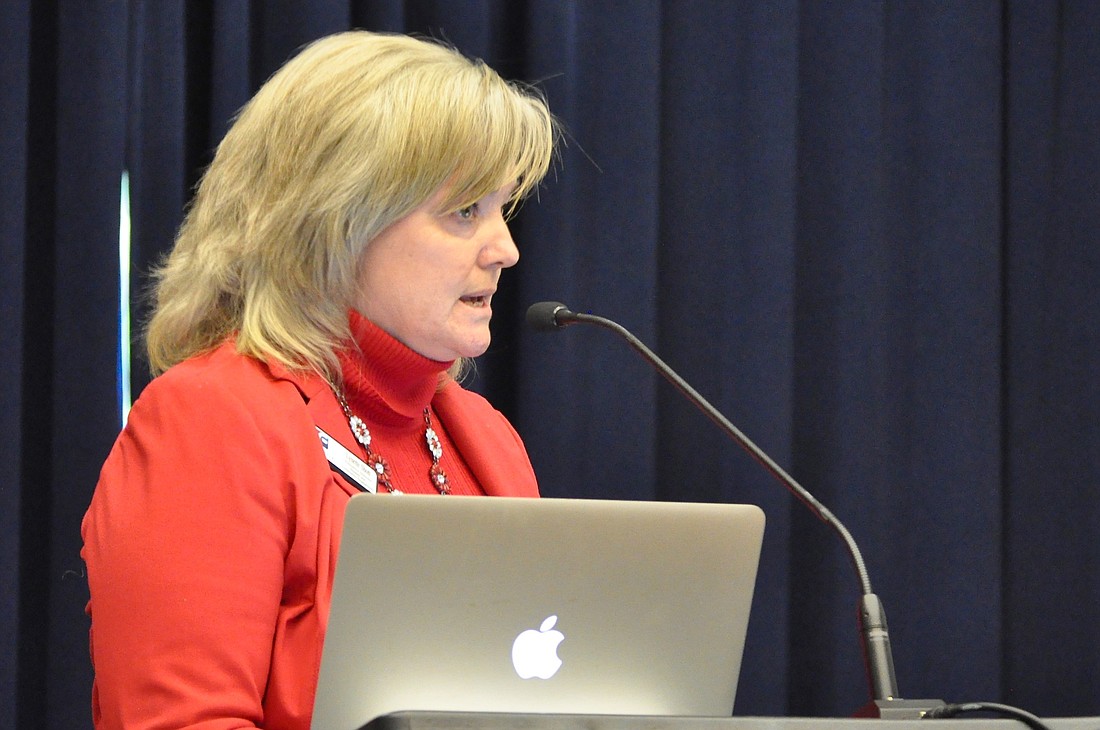- February 22, 2025

The school district has been working on expanding its ESE "inclusion" initiative — placing students with special needs in general education classes — for about a year, and some early results are in.
By the numbers, the program seems to be doing OK. At least, it's not harming the district's overall state rankings, which have improved in reading in all grades except fifth, and in math in all grades except third. But it's still frustrating many teachers, parents and students.
"There has to be a disconnect somewhere, because what I’m hearing from multiple teachers and (paraprofessionals), is they don’t feel that," Board Member Colleen Conklin said after Director of Student and Community Involvement Lynette Shott told the board that the district has many supports in place to help students. "And it could be simply an awareness issue," Conklin continued. "And so if there is a way to bridge that gap, I think that has to be a priority. Because if we have multiple supports out there, nobody should feel that way,"
Shott, who's new to her position in student services this year after three years as principal at Flagler Palm Coast High School, had spent days touring area elementary schools to see how the inclusion program is progressing, she told board members at a Feb. 2 School Board workshop.
Shott pointed out that the program isn't "full inclusion" — it doesn't place every single student with special needs in general education classes. There are still students in small group settings outside of general classrooms.
The effort to expand the district's inclusion program got off to a rough start in 2014, with parents complaining that their children with special needs were being "mainstreamed" into general education classes without the help they needed, and that the district wasn't responding to their complaints. The outcry led to a series of meetings between school district staff and parents, with staff members pledging to add more support at the schools and to be more responsive to parents' requests for help.
There were a number of themes that emerged when Shott spoke with teachers and staff at the local schools this year, she said. Once was the need to spend more time planning with school staff and preparing them to work with students with special needs.
From a teacher's perspective, she said, "If I happen to have a student coming into my class who may have some fairly significant needs, if I find out about that in preplanning, that's very difficult to make sure that I am able to be prepared and have all the training I need."
Teachers need more time than that to prepare, Shott said, and they also want to be able to spend more time with parents and paraprofessionals who work with children with special needs.
Also, she said, individual schools have developed inclusion plans tailored to their own schools, so that while there are common factors, there are also differences that can cause problems when students transfer from one school to another.
Elementary school teachers expressed a desire for better communication with the voluntary pre-kindergarten program to help students with special needs make a more seamless transition.
And teachers in general said they wanted more opportunities for training.
"A common theme was that there was definitely a hunger for more training on (autism spectrum disorders)," Shott said.
Another concern was assessments: Teachers and parents have campaigned about policies that force some students with disabilities to test with their age group even if they're developmentally several years behind.
The district needs to develop best practices on what accommodations are appropriate and how it can best use tests to measure students' progress, Shott said.
School Board member Andy Dance said he'd also heard complaints about the program.
"When I’m out there, I will have feedback from the teachers about — just general frustration, I guess," Dance said. "What process do you recommend they go through as they encounter frustrations in the classroom?"
"The first thing I would say is, 'Don’t wait,'" Shott replied. "If they are encountering situations where we have a student that they just feel is not being successful in that setting, they need to come forward. They can go immediately to their school staffing specialist … We are here; they need to reach out, so we can make sure that we can put the right people in place to analyze the situation."
— This story has been corrected to reflect the nature of the inclusion plans that have been tailored to individual schools.